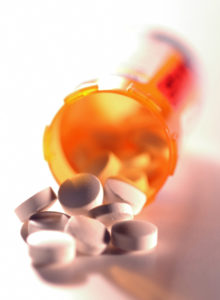
In September 2020, the New York Post ran an article addressing the statistics of adults in the U.S. who are not drinking enough water during the day.
https://nypost.com/2020/09/03/most-adults-dont-drink-enough-water-every-day-do-you/
More than half of adults in the United States don’t drink enough water, according to a poll of 2,000 people. Just 22 percent drink the USDA recommended eight to 10 glasses a day. Instead, most Americans are consuming a mere five glasses a day, about half the advised amount.
The health benefits of staying properly hydrated are “top to bottom.” Staying properly hydrated is credited for instilling feelings of being refreshed, more alert, being less hungry, having clearer skin, and being more active. Another health benefit has to do with having better oral health.
Water intake helps to support saliva in the mouth. Saliva is a natural rinsing agent that helps to flush bacteria and food particles from the ‘oral cavity’ (mouth’s interior). This helps to neutralize the acids produced by oral bacteria and aids in preventing tooth decay and the development of periodontal (gum) disease.
Additionally, saliva enhances the ability to taste and makes chewing and swallowing easier. The role of saliva is also to help in the breakdown of food in the mouth as part of the digestive process.
Of course, having a too-dry mouth happens to everyone on occasion. It is a natural part of the aging process or can be a side effect of many prescription or OTC medications. For example, people who take an antihistamine during allergy season often notice oral dryness.
Although occasional dry mouth can be overcome by increasing water intake throughout the day, some people may also need to use an oral rinse that is specially formulated to replenish oral moisture.
Having persistent “dry mouth” is a medical condition known as Xerostomia. It affects an estimated one third of Americans. Xerostomia occurs when the salivary glands fail to produce sufficient saliva to keep the mouth wet.
For people who have Xerostomia, signs and symptoms may include:
• Feeling the mouth is often dry or fuzzy
• Thick saliva that may sometimes seem stringy
• Frequent bad breath
• Altered taste
• Difficulty speaking, chewing or swallowing
• Dry or sore throat and feeling hoarse
• Grooves in the tongue
• Problems wearing dentures
https://www.mayoclinic.org/diseases-conditions/dry-mouth/symptoms-causes/syc-20356048
The appropriate treatment for dry mouth will depend on its cause.
Consuming caffeinated beverages, such as colas, coffee and tea can have drying effects on oral tissues. Dry mouth can also result from the aging process as well as medical conditions (such as acid reflux, sinus infections, diabetes, and bronchitis).
Snoring or breathing through the mouth due to sinus problems can contribute to dry oral tissues. Dry mouth can also occur from radiation therapy for cancer. However, in the U.S., one of the greatest contributors to oral dryness are the medications that adults take.
The most frequently cited medications with an oral dryness side effect are:
• Antidepressants
• Decongestants
• Antihistamines
• Appetite suppressants
• Diuretics
• Muscle relaxers
Your oral health is dependent upon saliva flow to help control oral bacteria levels. Throughout the day, bacteria, acid, food and saliva mix to form plaque. This sticky bacterial film coats the teeth. Without proper saliva flow, aided by brushing and flossing, acids in plaque dissolve tooth enamel, creating cavities or holes.
When saliva flow is insufficient, bacteria are not rinsed from the mouth efficiently. This allows them to multiply, and they do so rapidly.
As a Shelby Twp dentist, our first step will be to determine the cause of your oral dryness. We can then address the problem effectively. We will also help you with an individualized protocol to restore your oral health to an optimal condition. We can then create a program that allows you to maintain a healthy mouth at home between visits.
In the meantime, measures that can lessen the negative effects of oral dryness include:
– Brush at least twice daily for a minimum of two minutes. Use a soft to medium bristled toothbrush and a fluoridated toothpaste.
– Use a tongue scraper or brush your tongue with your toothbrush after brushing teeth.
– Floss daily. If this is difficult, purchase a water flosser.
– Drink plenty of plain water throughout the day. (Omit lemon, which can be too acidic on tooth enamel.)
– Use an oral rinse that replenishes oral moisture. (available over-the-counter)
If your dry mouth is causing you persistent bad breath, sore and tender gums, and seeing blood when brushing, periodontal (gum) disease is likely underway and needs prompt treatment. In addition to the destruction in your mouth, gum disease can release infectious bacteria into the bloodstream. These bacteria has been shown to trigger inflammatory reactions elsewhere in the body. It is also important to know that periodontal disease is the nation’s leading cause of adult tooth loss.
If you have symptoms of gum disease or feel you have persistent bad breath, we can help you avoid more complex problems that are likely to develop, including tooth loss. Call 586-739-2155 or tap here to schedule an examination.
Or, get to know us by requesting a free consultation. During this time, we can discuss potential treatment, concerns about comfort, including fear or anxiety, and have our financial coordinator explain payment plans.
Please remember that gum disease, once underway, will only worsen without treatment. The sooner you are evaluated, the greater your potential to enjoy a healthy, confident smile!